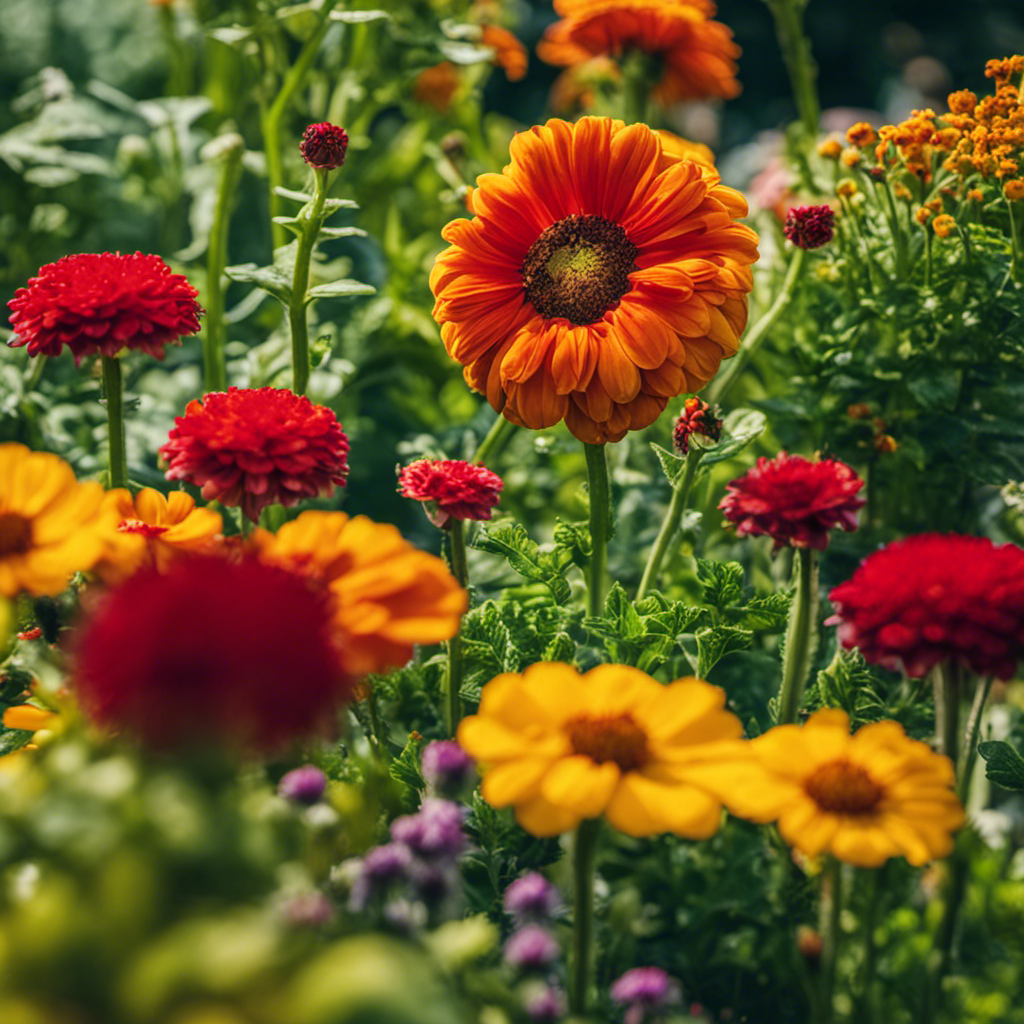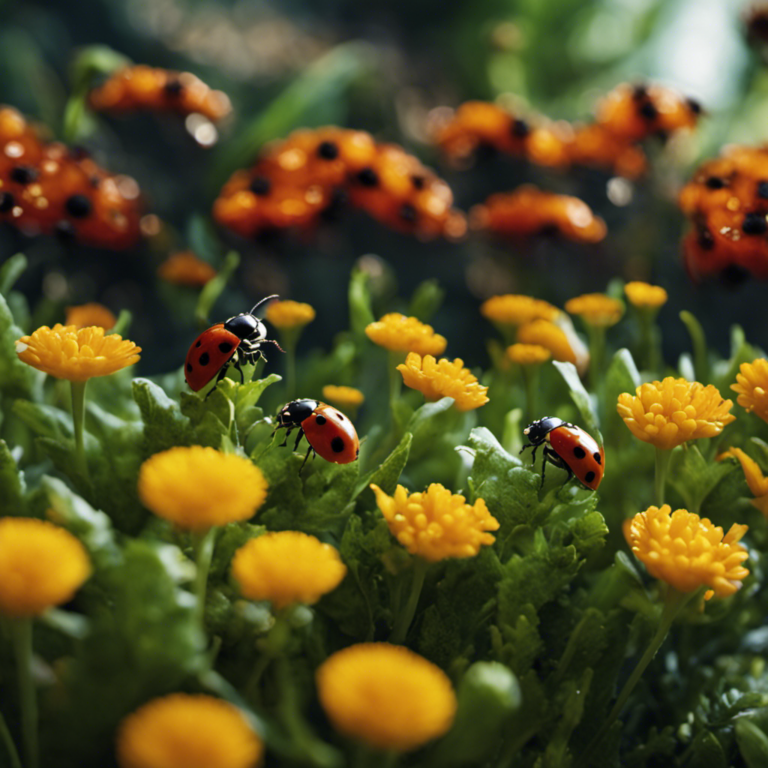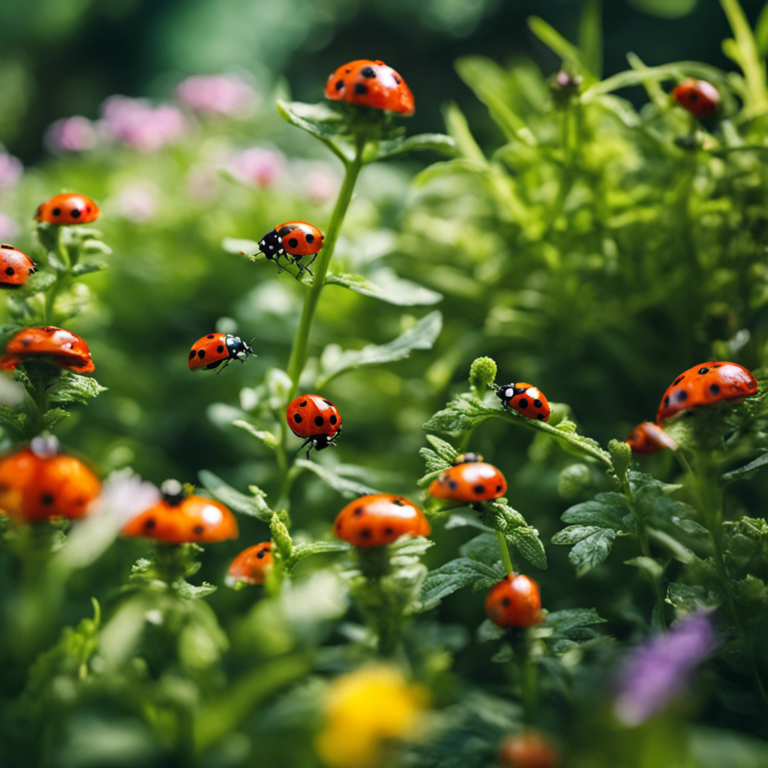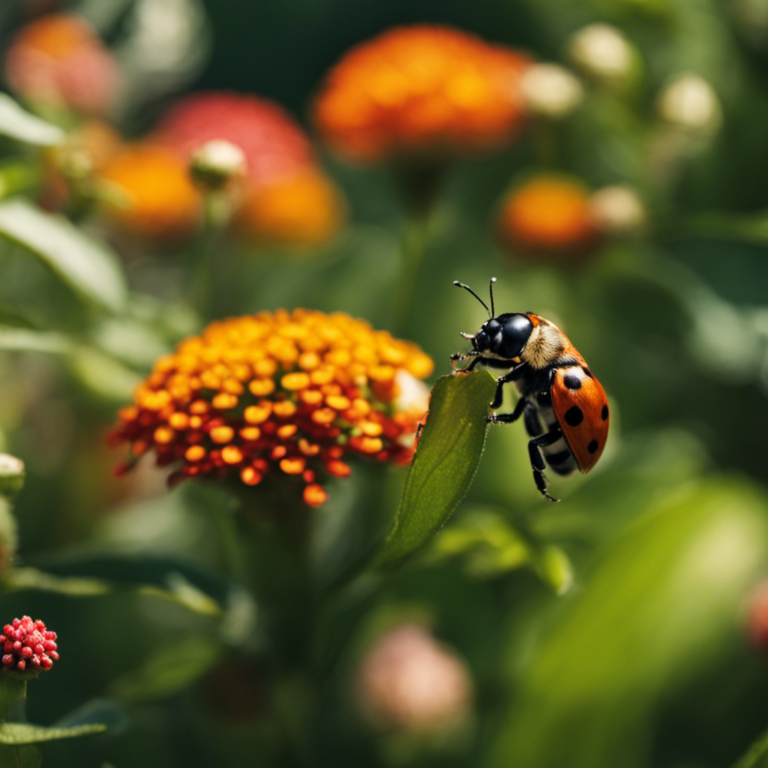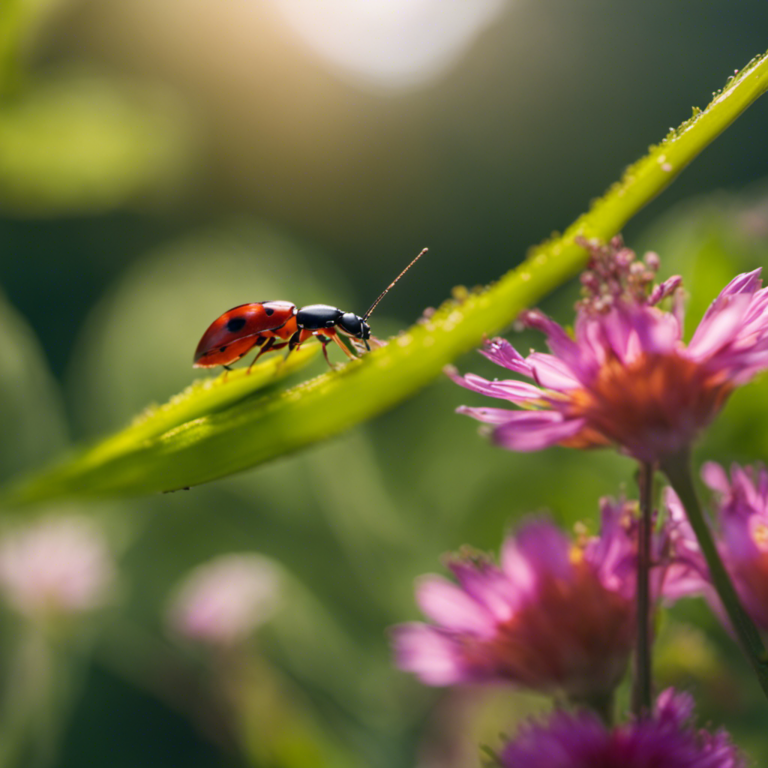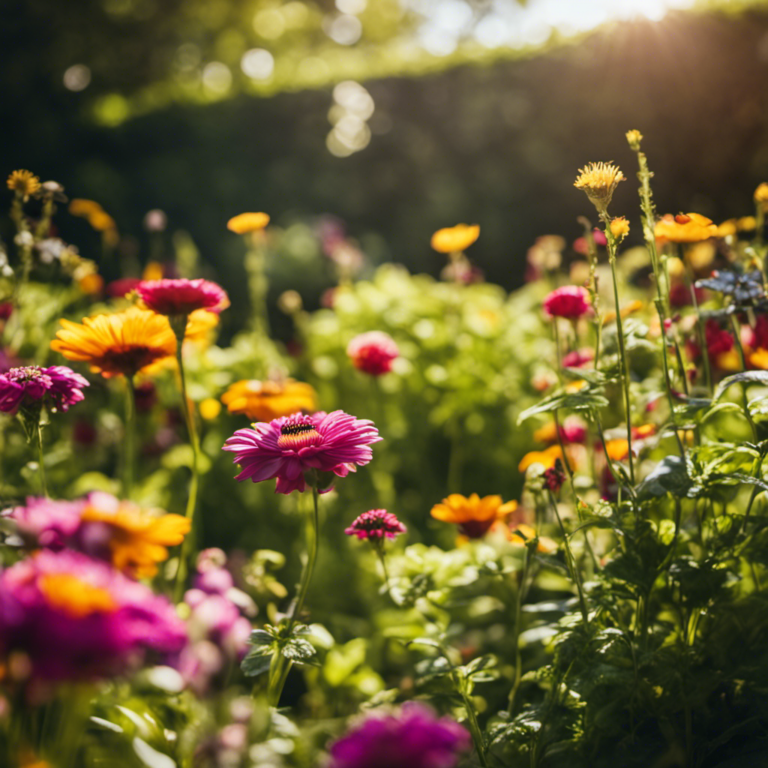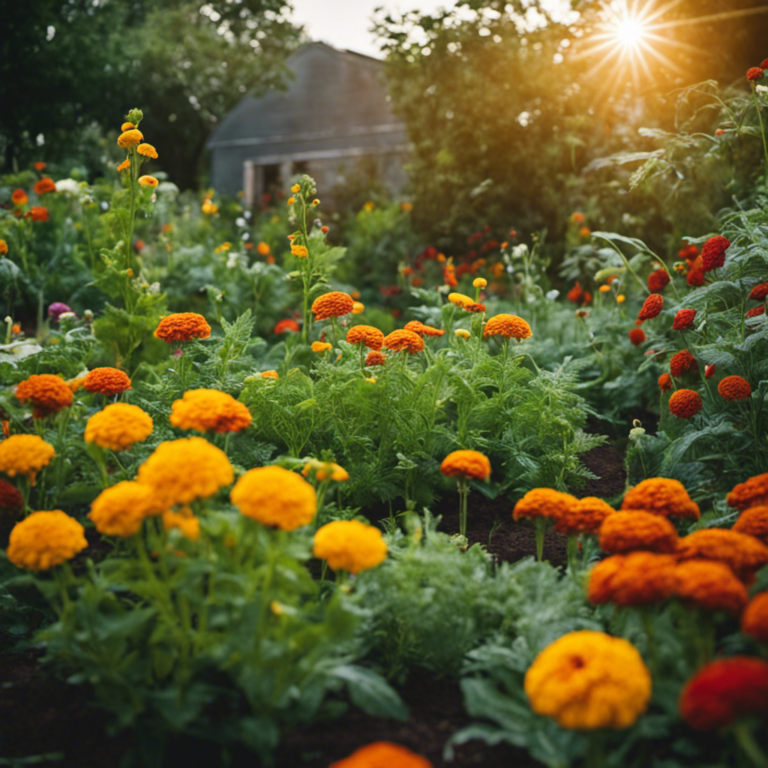Is your edible garden being overrun by pests? Don’t worry, this guide has got you covered! Say goodbye to harmful chemicals and embrace a pest-free paradise.
Unveil the secrets of natural pest repellents, beneficial insects, companion planting, homemade remedies, and physical barriers.
With these techniques, you can protect your precious harvest and enjoy chemical-free goodness. Your garden will thank you for it!
Key Takeaways
Guide to Safe and Chemical-Free Pest Repellents for Edible Gardens
By using natural repellents, beneficial insects, companion planting, homemade remedies, and physical barriers, you can effectively keep pests away from your edible garden without resorting to harmful chemicals.
It’s important to be proactive in preventing pest infestations to ensure the health and abundance of your garden, while also creating a safe and chemical-free environment for you and your loved ones.
As the old saying goes, "An ounce of prevention is worth a pound of cure." So, let’s explore these methods that can naturally protect your garden.
[Modified Quote]: "In nature, there are solutions to every problem. It’s our job to discover and utilize them." – Unknown
Natural Repellents for Edible Gardens
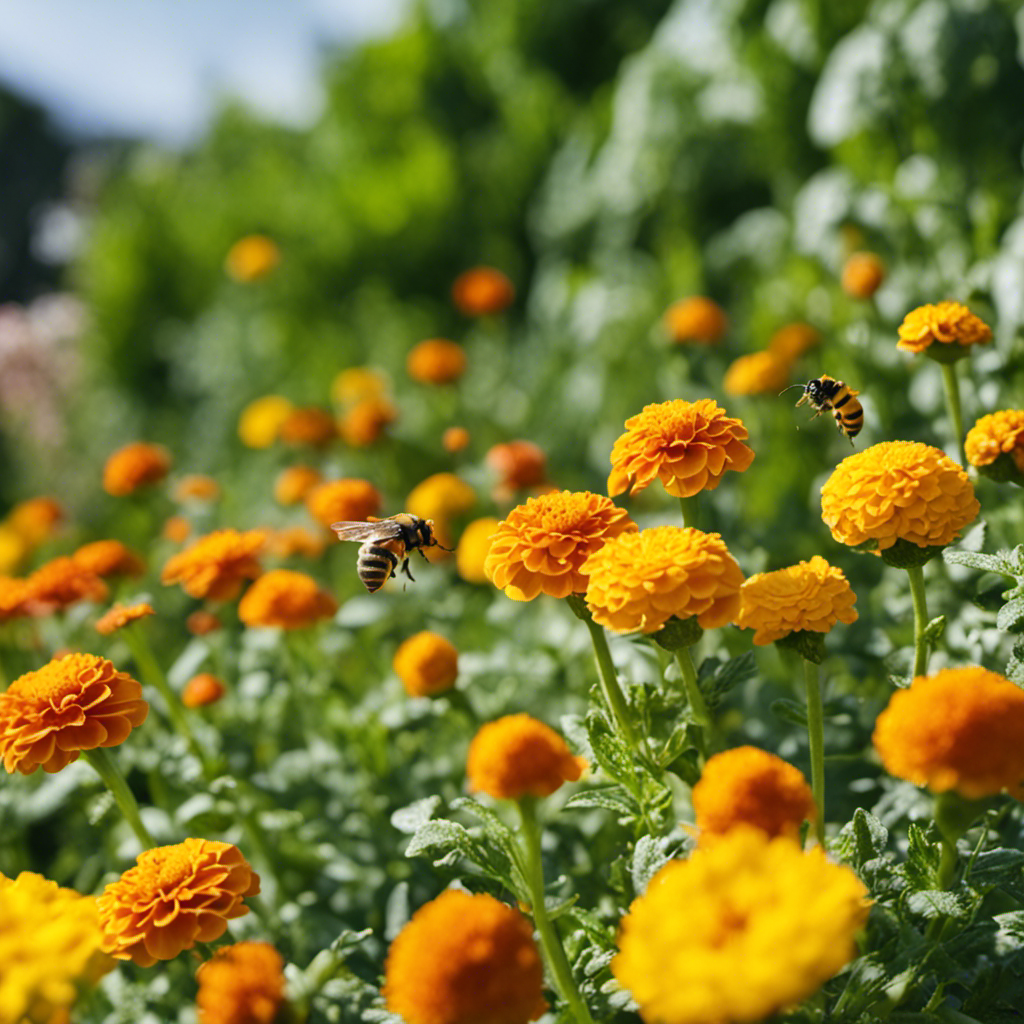
Use natural repellents to keep pests away from your edible garden. There are several effective organic pest control methods that can help you deter garden pests without the use of harmful chemicals.
One such method is using essential oils for garden pests. Certain essential oils, like peppermint, lavender, and citronella, have natural repellent properties that can keep pests such as aphids, ants, and beetles away. To use essential oils, dilute a few drops with water and spray the mixture onto the plants or around the garden area.
Another natural repellent is garlic. Garlic has a strong odor that pests find repulsive. You can create a garlic spray by blending garlic cloves with water and spraying it on your plants.
These natural repellents are safe for your edible garden and can help you maintain a pest-free environment.
Beneficial Insects for Pest Control
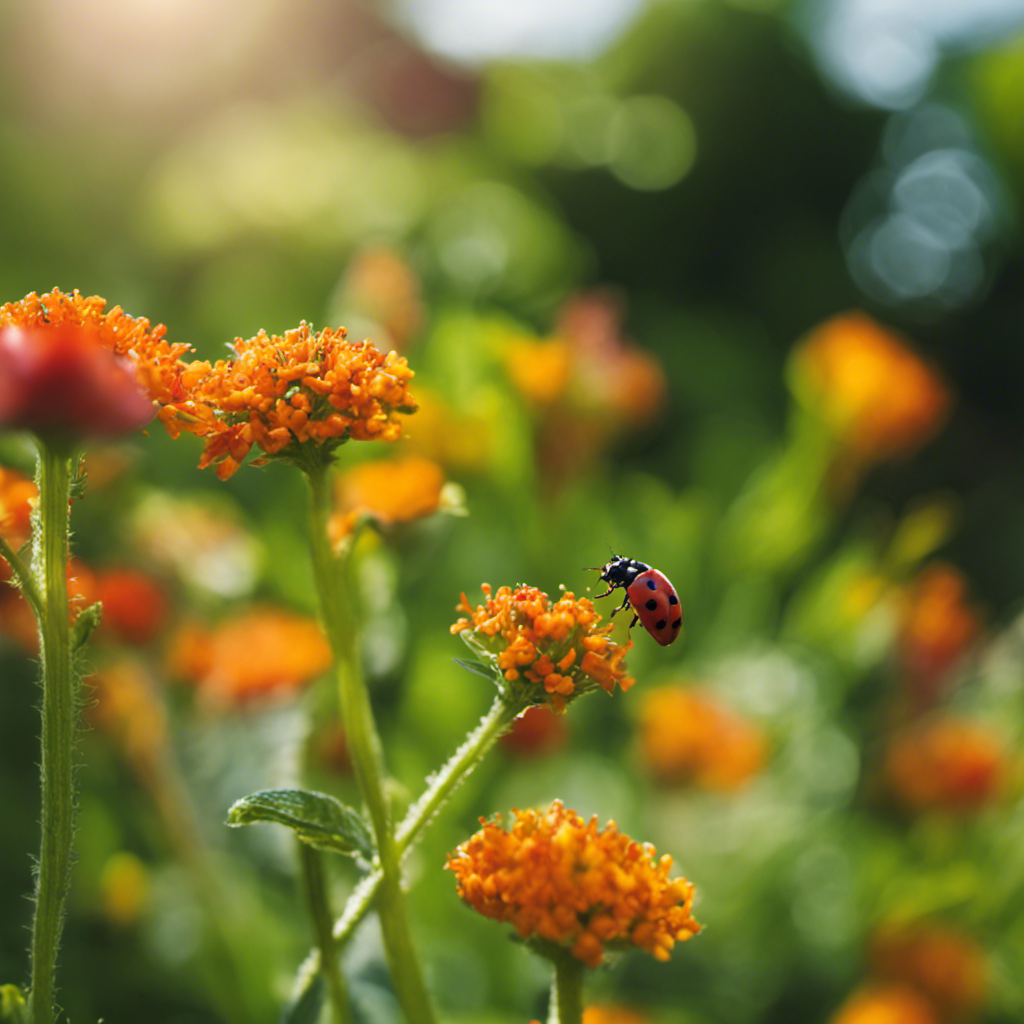
To effectively control pests in your edible garden without the use of chemicals, rely on the presence of beneficial insects. These insects are natural predators that feed on common garden pests, helping to keep their populations in check. By attracting predators to your garden, you can create a balanced ecosystem that minimizes the need for chemical interventions. Here are three key ways to attract beneficial insects:
-
Plant a diverse range of flowering plants: Including a variety of flowers in your garden can attract beneficial insects such as ladybugs, lacewings, and hoverflies. These insects are attracted to the nectar and pollen of flowers and also serve as pollinators for your edible crops.
-
Provide shelter and habitat: Beneficial insects need places to hide, rest, and reproduce. Incorporate features like rock piles, brush piles, and flowering shrubs to create a welcoming environment for them.
-
Avoid pesticides: Chemical pesticides can harm beneficial insects, so it’s important to avoid their use. Instead, opt for natural pest control methods, such as handpicking pests or using insecticidal soaps and oils.
Companion Planting for Organic Pest Control
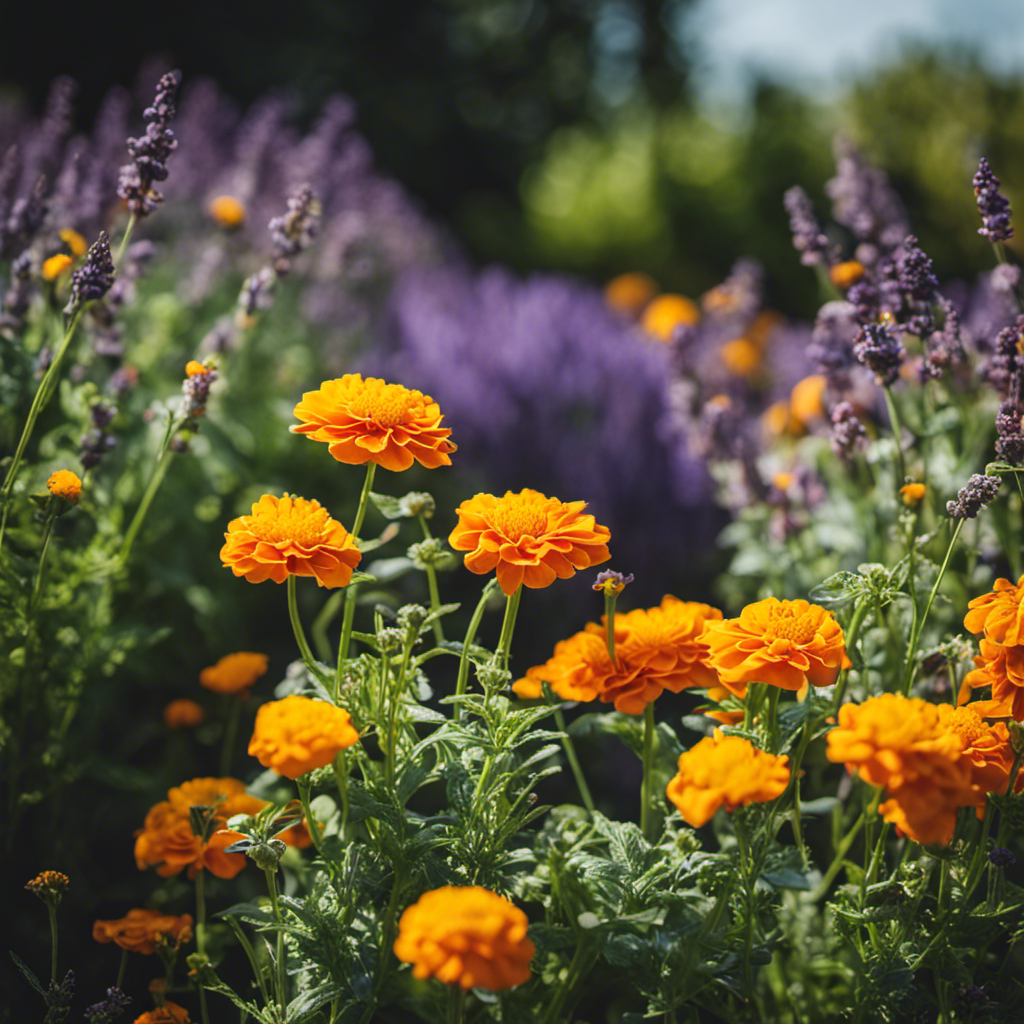
Companion Planting for Natural Pest Control
Planting certain companion plants alongside your edible crops can help naturally repel pests and reduce the need for chemical interventions. This practice, known as companion planting, involves strategically planting specific plants together to create intercropping benefits and strengthen plant guilds. By choosing the right companions, you can attract beneficial insects, deter harmful pests, and improve overall plant health.
For example, marigolds are often used as companion plants because their strong scent repels a variety of insects, including aphids and nematodes. Similarly, planting basil next to tomatoes can help deter tomato hornworms. Other effective companions include nasturtiums, which repel aphids and whiteflies, and garlic, which deters a wide range of pests.
By incorporating companion planting into your gardening practices, you can create a natural and chemical-free pest control system that benefits both your plants and the environment. It’s a simple and effective way to promote a healthy garden and reduce the reliance on pesticides.
As you explore the world of companion planting, you’ll discover the unique benefits each plant brings to your garden and unleash the power of natural pest control.
Homemade Pest Repellents for Edible Gardens
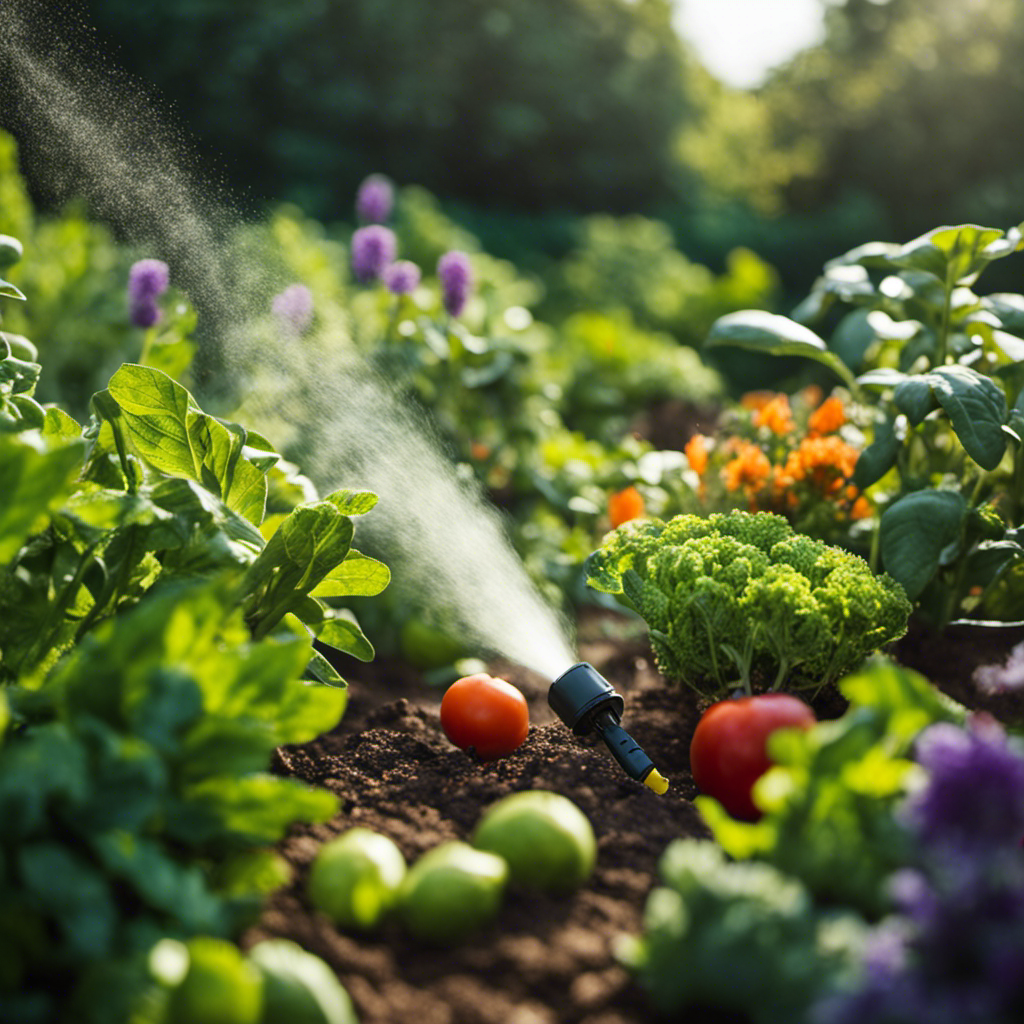
Creating a safe and effective pest control system for your edible garden is easier than you think. By making your own homemade repellents using natural ingredients and simple DIY solutions, you can protect your plants from pests without resorting to harmful chemicals. Let’s explore three effective homemade pest repellents that you can easily make at home.
Garlic spray is a powerful and natural insect repellent. Start by crushing several cloves of garlic and mixing them with water. Let the mixture sit overnight to allow the garlic to infuse into the water. Then, strain the mixture and transfer it to a spray bottle. This garlic spray can be used to repel insects like aphids and caterpillars, keeping your plants safe.
Another effective homemade pest repellent is neem oil spray. Neem oil is a natural insecticide that can effectively control a wide range of garden pests. To make neem oil spray, mix a few drops of neem oil with water and add a small amount of dish soap. This mixture can be sprayed on your plants to deter pests and protect your crops from damage.
If you’re dealing with pests like aphids, ants, and beetles, a chili pepper spray can come to your rescue. To make chili pepper spray, blend a few chili peppers with water and strain the mixture. Then, add a few drops of dish soap and mix it well. This homemade spray can be used to repel pests and keep your plants healthy.
Physical Barriers for Pest Prevention in Gardens
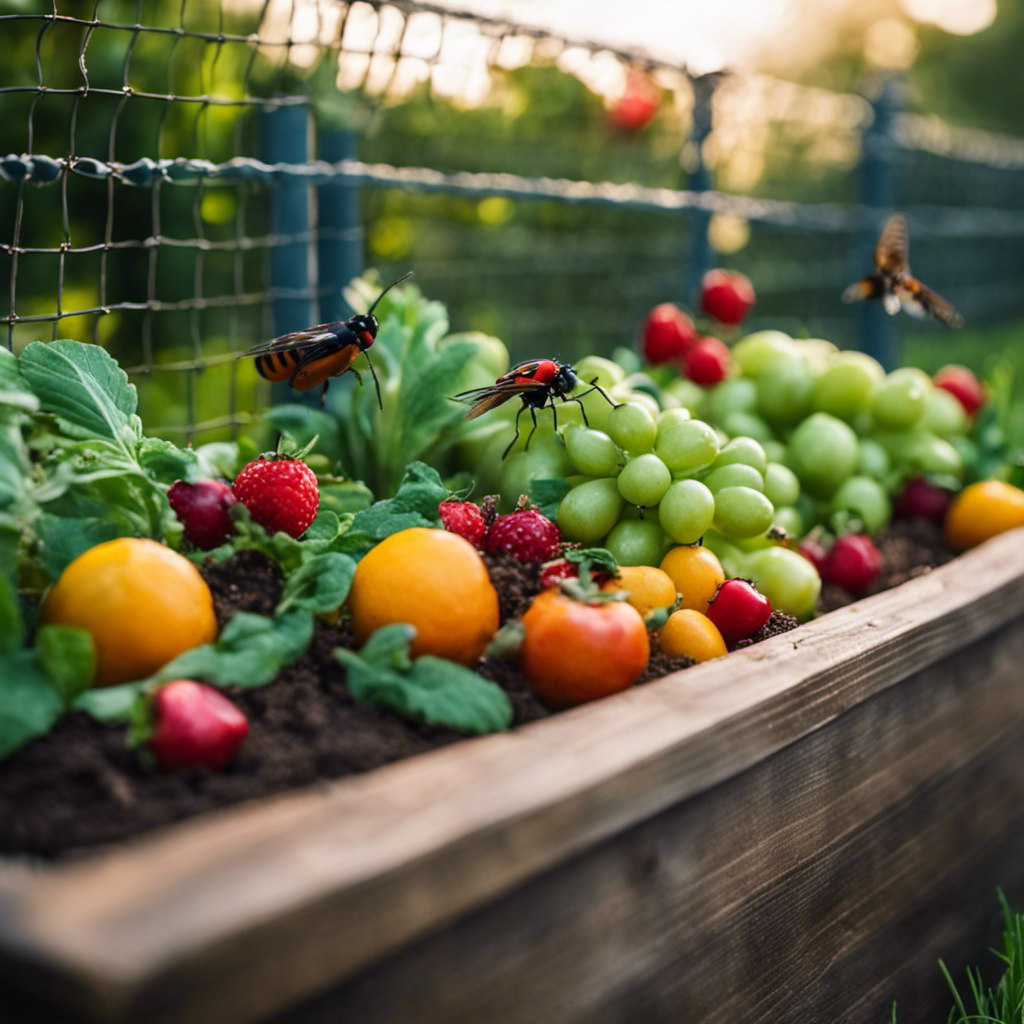
One effective method for preventing pests in your garden is to use physical barriers. Garden netting is a popular choice for protecting plants from insects, birds, and other pests. It’s made of a fine mesh material that can be draped over plants or secured around raised beds to create a barrier. The netting allows sunlight, air, and water to reach the plants while keeping pests out.
Another option for physical barriers is to use raised beds. By elevating your plants, you naturally deter pests that may be hiding in the soil. Raised beds also provide better drainage and soil control, which can contribute to healthier plants.
Incorporating these physical barriers into your garden can help protect your edible plants and create a pest-free environment.
Conclusion
By utilizing natural repellents, beneficial insects, companion planting, homemade remedies, and physical barriers, you can effectively keep pests away from your edible garden without the use of harmful chemicals.
It’s important to take proactive measures to prevent pest infestations in order to ensure the health and abundance of your garden, while also promoting a safe and chemical-free environment for yourself and your loved ones.
Remember, as the saying goes, ‘An ounce of prevention is worth a pound of cure.’ So, let’s explore these methods that can help protect your garden naturally.
